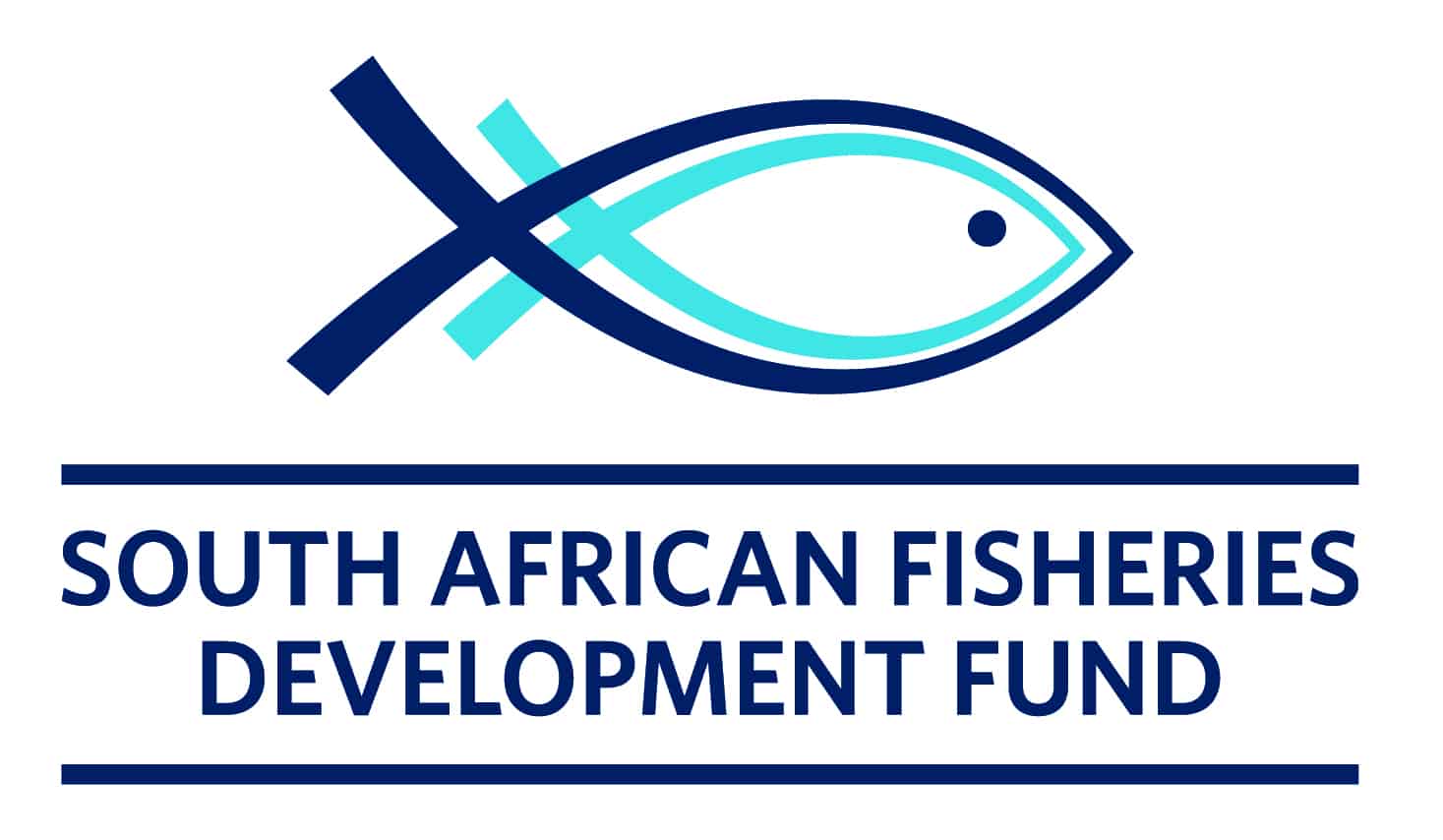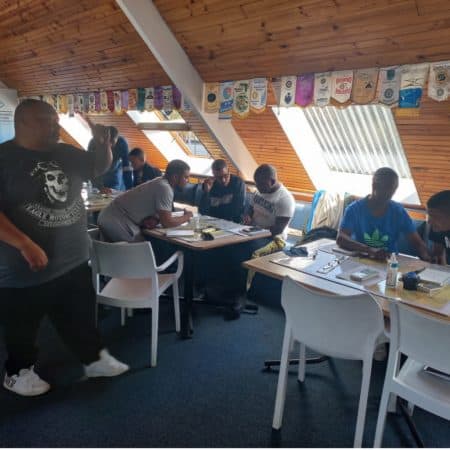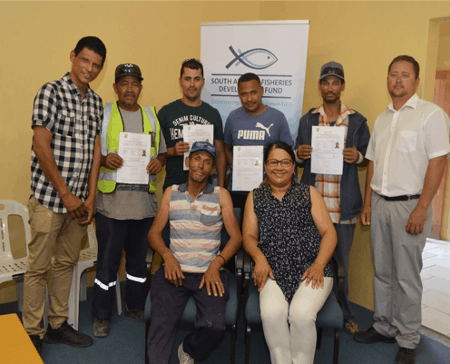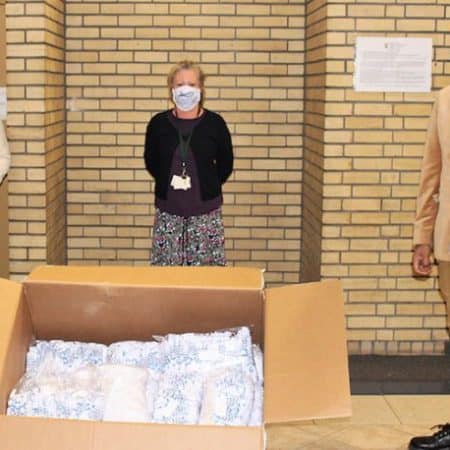Lending A Helping Hand
For decades’ disparities between; small, medium and large fishing interests have been highlighted on various platforms. Industrialized fisheries have been labeled by fishing communities as an enemy opposed to their natural growth path and development. Some SMMEs and coastal community-based Small Scale Fishers even go as far as to say that the large industrialised fisheries sector is the reason for their poverty. This preconception may become something of the past.
Dr Mark Botha
On 16 May 2018 one of the largest industralised fishing companies in South Africa; Sea harvest Ltd together with its parent, investment holding company Brimstone Investments Ltd and Old Mutual’s Masisizane Fund launched a R100-million Fisheries Development fund for development of the SMME, SSF and coastal community fisheries sectors.
More than money
The notion of the South Africa Fisheries Small Medium and Micro-sized enterprises Development Fund was conceptualized by struggle stalwarts within Brimstone who provided the founding leadership and strategic direction in developing the fund.
Old Mutual’s Masisizane Fund was approached by Brimstone to assist in providing entrepreneurship support and funding as well as active support and information exchange intelligence through research and mentoring. Sea harvest has come on board to contribute its vast industrial knowledge; value chain guidance and experience; access to local and international markets and have dedicated certain operational assets as well as the expertise of certain personnel to deliver the intellectual capital requirements of emerging SMME’s and SSF’s through the Fund.
In the prevalent spirit of unity and renewal, the Fund is designed to strategically empower transformation and growth within the SMME and SSF sectors through direct and non-direct financial support interventions. Beneficiaries of the Fund will include owners, managers and personnel of SMMEs and SSFs and incorporate the interests of socioeconomic development of SSF fishing communities within South Africa’s four coastal provinces.
The fisheries development Fund identified key priorities, namely, the need for;
- Programmes to achieve efficiency in harvesting for both wild and captive harvesting practices;
- Support for alternative livelihood projects such as; aquaculture, maritime tourism, coastal, harbor and slipway developments;
- Interventions that will ensure economic growth for SMMEs and SSFs through value chain optimization;
- Strategies to address poverty alleviation, structural upliftment and empowerment within fishing empowerment within fishing communities, SMMEs and SSFs and
- Fostering unity and renewal that results in cohesive development improved trust relations amongst all participants; small, medium and large, sustainable resource utilization and a better sharing of the wealth annually generated from South Africa’s natural marine resource endowments.
Commentators operational within SMMEs community based SSF fisheries, following decades of deprivation contend that now, more than even, they urgently require comprehensive financial and non-financial support from both government and the private sector.
Some argue that financial support in the form of business competence and expertise; access to markets and balanced power relations with the industrialised sector would improve the welfare of coastal community-based fisher households substantially. Consistent with this view, the Fund has identified potential financial and non-financial support programs for SMMEs, SSFs and coastal communities. (see table)
Intended outcomes
The Fund endeavors to create a sustainable ocean’s economy through inclusive SMME, SSF and community-based socioeconomic development initiatives to engender participation that is wholesome and meaningful to all fisheries stakeholders. In doing so, it also aims to more equitably transform the present fisheries ownership and control structure which is dominated by industrialised fisheries in terms of turnover and taxed profit.
Importantly the Fund will move to stimulate youth entrepreneurship within fisheries by commissioning specific research to identify opportunities for youth-led businesses in a manner that complements the corresponding South African government youth development programs, policies and initiatives.
Economic opportunities for SMMEs, SSFs and coastal communities would not be limited to only securing access to natural marine resource endowments, but also include meaningful participation as anchors for investment in associated sectors such as; aquaculture, maritime tourism, coastal, harbor and slipway developments consistent within the strategic direction of government departments through facilitation of adaptive partnership between major industrial stakeholders, SMMEs and SSFs.
The intended objective of the Fund is to achieve greater success when projects are implemented in trustworthy partnerships with capable stakeholders. To this end, the fund identified the departments of Agriculture, Forestry and Fisheries; Trade and industry; Public works; Transport and labour as well as Transnet; Provincial and Local Government; South African maritime safety authority and sector education and training authorities, as strategic partners.
| Financial | Non-financial |
| Assistance in cost effective acquisition and provision of pre-harvesting requirements, as against economy of scale benefits, e.g. fishing gear, bait, vessel surveys, etc. | Facilitating unity by developing strategic linkages between the previously disenfranchised, the private sector and government to prioritize growth and regulatory unison within the SMME and SSF fisheries sectors; |
| Infrastructural support, e.g. cold storage facilities, vessels, fish processing facilities, aquaculture tanks, etc. | Facilitating access to all factors of production, namely: vessels, processing facilities and marketing networks, locally and internationally, thereby substantially increasing the value proposition to SMME’s and SSF enterprises and coastal communities; |
| Commissioning intensive research leading to SMME and SSF fisheries sector growth, improved compliance, efficiency gains and sustainable natural resource utilization; and | Business acumen, capacity and expertise through mentoring and business coaching support programs; and |
| Investment in assets required for development of sustainable alternative livelihood opportunities e.g. aquaculture, tourism, coastal, harbor and slipway developments. | Direct access to local and international markets-shortening the existing SMME and SSF fisheries sector value chains. |
In the prevalent spirit of unity and renewal the Fund is designed to strategically empower transformation and growth within the SMME and SSF sectors through direct and non-direct financial support interventions. Beneficiaries of the Fund will include owners, managers and personnel of SMME’s and SSF’s and incorporate the interests of socioeconomic development of SSF fishing communities within South Africa’s four coastal provinces.
Dr Mark Botha
Creating expectations
Speaking to SMMEs, SSFs and coastal communities, it is clear that a number of expectations need to be met. These include:
- Funding of pilot projects on community-based aquaculture for both food security and commercial purposes.
- Value chain development where SMMEs and SSFs realise maximum benefit from product end value.
- Building institutional capacity of SMMEs and SSFs in leadership and management development for them to actively participate within all tiers of the South African fisheries economy and at all levels of institutional administration as well as regulatory management.
- Funding for projects which is designed to address alternative livelihood opportunities for SMMEs, SSFs and fishing communities, e.g. within the maritime tourism sector such as, vessels chartering-sea-going, within estuaries and on rivers, training of tour guides, assisting with coastal community(village) based accommodation and so on.
- Training of grassroots leaders of fisheries’ organizations to enhance institutional capacity; in particular, within emerging coastal community cooperatives recognized in terms of the provisions of the Small-scale fisheries policy approved by Cabinet in 2012.
- Assist in creating functional cold-chains which can be accessed by local fisheries.
- Assist Eastern Cape and Kwa-Zulu Natal fisheries to acquire small vessels (consistent to the cooperative vessel scheme provided by the DTI to Western Cape and Northern Cape community-based cooperatives)
- Funding the creations of grassroots communication networks to assist beneficiaries to better understand policies and regulations. Heed must be taken of local community dynamics, culture and traditions.
- Funding a team to conduct an accurate assessment of the present economic status of local fishing communities and how the present status quo may be elevated along the entire South Africa coastline over a 12 to 24-month period.
- Assist in the establishment of low-cost frozen fish and bait supply outlets owned and controlled by local fishing communities.
- Assist with market development for tourism products such as art and crafts, including cuisine and story-telling by seasoned ambassadors of coastal fishing communities.
- Funding facilities to produce and market value added products from line fish, such as smoked fish, pickles, salting and drying of fish.
- Establish a sea accident for families of SMME members and SSFs who lost their lives at sea.
- Providing soft loans/grants that will support SMMEs, SSFs and coastal communities in securing grant funding from government agencies such as, but not limited to the DTI.
- Business development support such as business planning strategy, mentoring, asset acquisition, export and import.
Compatibility between the Fund goals and beneficiaries’ expectations.
It is apparent that congruency exists between the Fund’s intended outcomes and objectives and the expectations of the Fund’s beneficiaries. In the attaining this the Fund is in process executing the following.
- Conducting consulted research on the SMME, SSF and fishing communities needs through inter alia focus group discussions.
- Prioritizing implementation of the interventions emanating from the needs assessment study.
- Identifying resources and project partners to implement interventions. Implementation teams will be constituted per intervention as projects may differ across interventions and communities.
- Establishing multi and interdisciplinary public-private partnership that support governments developmental objectives and infrastructural investments program for the Oceans economy under Operation Phakisa protocol.
Measuring success
The Fund will use a performance measurement and evaluation framework with clear success indicators. In addition, an ongoing performance monitoring tool will be used to identify potential risk and institute corrective measures.
Moreover, at the end of the cycle an independent service provider will be appointed to evaluate the project’s success in relation to its intended outcomes and objectives.
In ensuring the sustainability of the Fund a hybrid funding mechanism will be applied to include more than just grant funding. In doing so capital would be preserved and recycled.
The minister of the Department of Agriculture, Forestry and Fisheries stated that; “the objective of the Fund is to ensure we fully empower small businesses entering the fishing industry in order to truly revitalize the Ocean’s Economy.” (DAFF budget vote 2018); and
The director General of DAFF recently commented that- “even though the Fund may be considered a noble gestured; it should be celebrated only when the lives of the first recipients are noticeably improved.”
‘This is consistent with the DG’s post-sabbatical theme of tangible and measurable service delivery to the poor and marginalized majority striving to become meaningfully operational within the broader agricultural sector, in this instance fisheries and related alternative coastal community development opportunities.
The fisheries development Fund’s founding donors; Brimstone investment corporation Ltd, Sea harvest Ltd and Old Mutual Ltd Masisizane fund have intimated that their vision is for the Fund to be a fishing industry-oriented fund. As an industry Fund its major objective is to secure unity in renewal for sustainable growth of a productively thriving SMME and SSF sector.
Successful implementation of these initiatives through strategic public-private sector and coastal community-based partnerships would result in the SMME and SSF sectors being key economic drivers in radically improving the number of sustainable employment opportunities to positively transform and empower the lives and livelihoods of the poor and vulnerable, particularly the youth in the communities, together with many thousands of dependents.
“Even though the Fund may be considered a noble gesture; it should be celebrated only when the lives of the first recipients’ are noticeably improved.”
Dr Mark Botha




